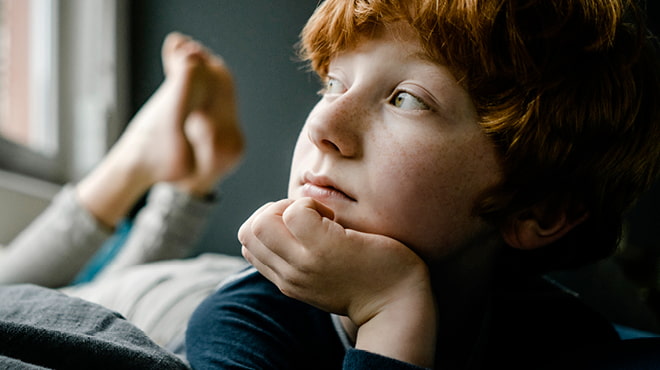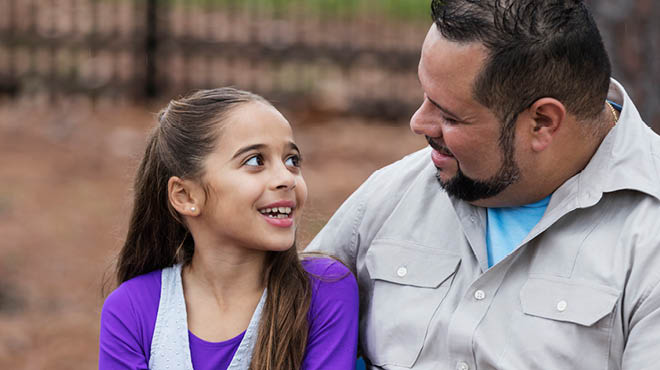Recent Posts
Bone-anchored implants: Treating your child's hearing loss

As an audiologist, I often work with parents worried about their child's hearing. Hearing loss is a significant concern for parents because it can impair speech and language skills as their child develops.
Approximately 2 of every 1,000 infants are born with hearing loss every year, according to the American Speech-Language-Hearing Association. The newborn hearing screening conducted shortly after birth often detects the issue, but hearing loss can progress as children get older. Some estimates indicate that by adolescence, nearly 4 in 1,000 and up to 23 in 1,000 young people experience permanent hearing loss in one or both ears.
How hearing loss can affect a child
Hearing loss, whether it's in one or both ears, can profoundly influence a child's physical, social and emotional skills.
Some of the ways children with hearing loss are affected include:
- They typically find it more difficult to learn vocabulary, grammar, word order and other aspects of verbal communication.
- They may have a harder time developing social and emotional skills. Many children with untreated hearing loss will report feeling isolated or unhappy in school.
- They may have difficulty hearing their own voices and not realize they're speaking loudly or mumbling because the sound of their speech isn't clear to them.
- They may experience delays in speech development because they often can't hear quiet speech sounds, such as "s," "f" and "t."
Help for your child's hearing loss
It's crucial to appropriately manage hearing loss in children to help them succeed in their development. Children who use amplification devices, which include hearing aids, cochlear implants or bone-anchored implants (BAI), show more rapid growth patterns and better early language outcomes than those with no treatment.

While hearing aids and cochlear implants may be more familiar to parents, BAI is another surgically implantable system for hearing loss. It works by enhancing the natural ability of bone to transmit sound through a pathway to the inner ear, and bypasses the external auditory canal and middle ear. The titanium implant is placed during a short outpatient surgical procedure.
BAI first was used in Europe in 1977 and approved by the Food and Drug Administration (FDA) for use in the U.S. in 1996. In 2002, the FDA extended its approval of BAI for treating cases of single-sided sensorineural deafness, which is caused by damage to the inner ear.
The three main parts of BAI include:
- An external sound processor, which picks up and collects sounds.
- An abutment or magnet, which connects the processor to the titanium implant and converts sound into vibrations.
- A titanium implant inserted into the bone, which integrates with the mastoid portion of the temporal bone behind the ear. The implant transfers the vibrations through the skull to the inner ear and cochlea.
Is your child a candidate for BAI?
BAI may be used for people of all ages based on their hearing loss type, including:
- Conductive hearing loss or hearing loss caused by a problem in the middle ear space, such as chronic ear infections or a hole in the eardrum. This type of hearing loss also may be caused by malformation of the outer ear, ear canal or ear structures, like the middle ear bones.
- Mixed hearing loss, or hearing loss caused by a problem in the middle and inner ear.
- Single-sided deafness.
- Someone born without a fully developed ear on one side.
- People who have had complicated middle ear surgeries that prevent them from using hearing aids.
- Those who have complications from constant ear drainage.
After surgery, people with BAI regain the ability to hear more clearly and can enjoy a wide range of physical activities, including participating in sports.
If you're concerned about hearing loss in your child or would like to schedule a hearing screening, talk with their healthcare team, who can refer you to an audiology expert for help.
Katie Dease is an audiologist in Owatonna, Minnesota.





